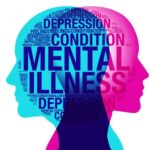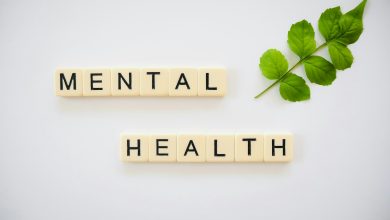What Are The Pros and Cons Of Mental Illness Medications

Mental health medications influence the brain chemicals that regulate emotions and thought patterns. They’re usually more effective when combined with psychotherapy. In some cases, medicines can reduce symptoms so other methods of a treatment plan can be more effective. It is important to remember that medications do not cure mental health conditions.
They can make your symptoms of mental illness go away or affect you less, but if you stop taking them, your symptoms may come back. If something about your mental health medication bothers you, it is important that you talk with your doctor or counsellor about it before you stop taking any medication as suddenly stopping the taking of medications can cause unwanted side effects.
Types Of Medications
Learning about your medication options can help you have a more meaningful conversation with your doctor. You also can be more fully involved in taking care of your health. Medications for mental health conditions fall into the following types:
Antipsychotic medications. This can help reduce or in some cases, eliminate hearing unwanted voices or having very fearful thoughts. Antipsychotic medications can promote thinking clearly, staying focused on reality, and feeling organized and calm. They also can help you sleep better and communicate more effectively. These medications can come in pill form, which are taken daily, or in an injectable form that lasts between 3 and 6 weeks depending on the specific drug.
Possible side effects include: drowsiness, upset stomach, increased appetite and weight gain, blurred vision, constipation, dry mouth, dizziness, low blood pressure, restlessness, weakness, shakes and twitches, and muscle stiffness. Rare side effects include seizures and problems controlling internal body temperature.
Antidepressants. They help reduce such feelings as sadness or depressed mood and anxiety as well as suicidal thoughts. They do not, however, make people “happy” or change their personalities. The oldest form of antidepressants are called tricyclic antidepressants, but they are not prescribed as often as newer antidepressants like SSRIs or SNRIs because they have more side effects.
Possible side effects include: drowsiness or insomnia, constipation, weight gain, sexual problems, tremors and dry mouth. For people whose depression is resistant to treatment and do not experience relief from antidepressants alone, esketamine may be taken in addition to antidepressants. Esketamine is derived from the drug ketamine and works on different chemical receptors in the brain than antidepressant pills. It is administered by a doctor as a nasal spray.
Mood stabilizers. Help reduce or eliminate extremes of high and low moods and related symptoms. They shouldn’t keep you from experiencing the normal ups and downs of life. These medications are also used to treat depression that lasts for a long time, that goes away but comes back or that isn’t treated well enough with an antidepressant alone.
Possible side effects include: stomach problems, drowsiness, weight gain, dizziness, shaking, blurred vision, lack of coordination or confusion.
Tranquilizers and sleeping pills. Can reduce anxiety and insomnia and help you feel more relaxed. Although some of them are used mostly to help with sleep, they all might cause drowsiness. Usually, these medications are used only briefly because longer use can cause dependency.
These medicines are generally safe when used as prescribed and have relatively few serious side effects. As with any medicine, some people may have difficulties. You should call your doctor right away if you experience headaches, slurred speech, confusion, dizziness, nausea or increased nervousness or excitability.
Stimulants and related medicines. Can have a calming effect and help improve concentration and attention span in both children and adults. They also can improve a person’s ability to follow directions and reduce hyperactivity and impulsiveness.
Possible side effects include: trouble falling asleep, decreased appetite and weight loss. Less common side effects can include headaches, stomachaches, irritability, rapid pulse or increased blood pressure. These often go away within a few weeks after ending use or if your health care provider lowers your dose.
How medications mix with other things in your body
The chemicals in your medications can interact with chemicals in other things you are taking — even if it is just paracetamol for a headache or vitamin tablets. Because of this, it is really important to tell your doctor everything that you are taking.
Make sure you tell them about any other medicines, vitamins or herbal supplements you take, as well as what you have been eating and drinking, especially alcohol.
Medication in hospital and at home
When you are admitted to hospital, it is usually because you are seriously ill and need extra treatment to get well. While you are in hospital, you are usually given different types and doses of medication to what you might have been taking or will be prescribed once you are well enough to go home. You also have people giving you your medications when you need them. Once you are home you need to manage your medication use.
Once you are home, it is really easy to forget to take the right medications and dosage at the right time, and you might not have people with you all the time to remind you. Some things you can do to help remember to take your medication at the right time and right dosage include:
- make a schedule of the week with names of drugs, the dose, and what day and time each should be taken, and put it on your refrigerator.
- put your tablets into pill boxes with labels for the time of day and day of the week they can be taken.
- put reminders or appointments into your phone for when you need to take each drug.
- Keep regular appointments with your doctor or counsellor so that you can all keep track of how you are going and how your medications are working for you.




